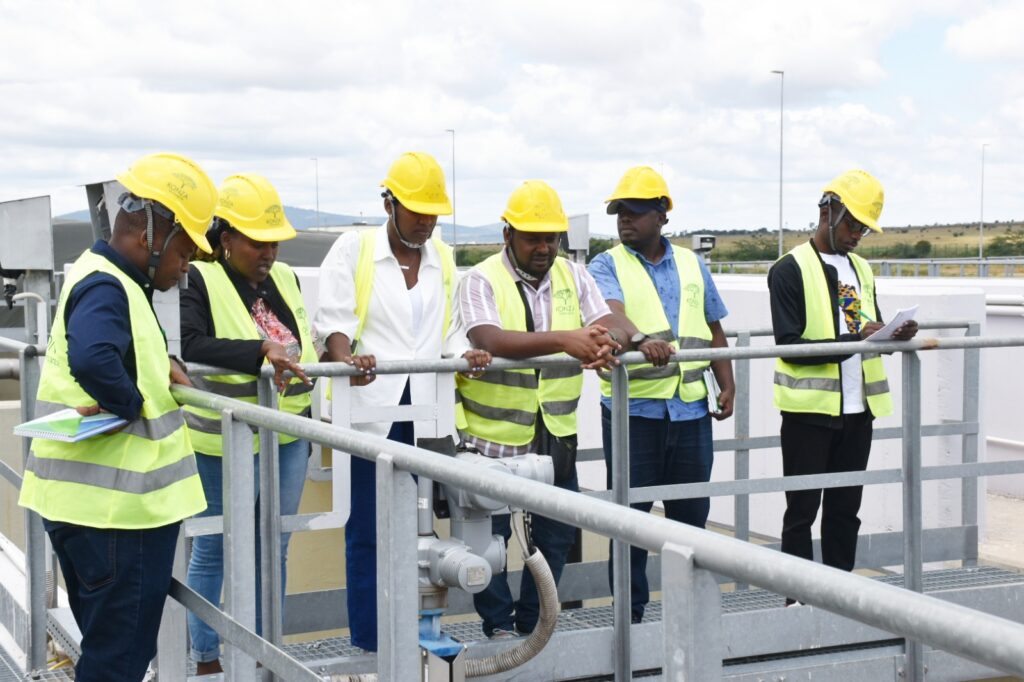
INTERNATIONAL TRAINING ON FORESTS AND TRANSPARENCY UNDER THE PARIS AGREEMENT
COURSE BACKGROUND
Forests are vital for achieving the goals of the Paris Agreement, particularly in combating climate change. A key part of this agreement is the Enhanced Transparency Framework (ETF), which requires countries to regularly report on their climate actions and emissions. However, many find it challenging to collect, analyze, and share the specific forest-related data needed to meet these strict transparency requirements.
ECAS Institute recognizes the critical role of accurate forest data in global climate efforts. We aim to help individuals and national bodies understand the ETF and its implications for the forest sector. This course will highlight the importance of robust forest monitoring systems in meeting international reporting standards.
This training is designed to equip participants with the knowledge to understand and address the transparency requirements related to forests under the Paris Agreement. It will cover the evolution of transparency frameworks, principles for National Forest Monitoring Systems, and the crucial role of forest data. By doing so, ECAS aims to strengthen countries’ capacity to report effectively and contribute to global climate action.
COURSE OBJECTIVES OF THE TRAINING
Upon completion of this training, participants will be able to:
- Understand the importance of forests in achieving the goals of the Paris Agreement.
- Explain the progressive changes in moving towards the transparency framework under the Paris Agreement and illustrate how this could be addressed in the forest sector.
- Describe the principles and elements which guide the design and operation of a sustainable National Forest Monitoring System (NFMS).
- Understand the importance of the NFMS to meet the requirement of the modalities, procedures, and guidelines of the ETF.
WHAT YOU WILL LEARN
This course’s objective is to learn about the Enhanced Transparency Framework (ETF) under the Paris Agreement. It will be useful to those wishing to understand the importance of forest-related data collection, analysis and dissemination in meeting the Enhanced Transparency Framework requirements. You will learn:
- The importance of forests in achieving the goals of the Paris Agreement.
- The progressive changes in moving towards the transparency framework under the Paris Agreement, illustrate how this could be addressed in the forest sector.
- The principles and elements which guide the design and operation of a sustainable National Forest Monitoring System (NFMS).
- The importance of the NFMS to meet the requirement of the modalities, procedures and guidelines of the ETF.
DURATION AND PROGRAM
This is a structured training course, consisting of three lessons. The program is designed to provide essential knowledge about the Enhanced Transparency Framework and its application to the forest sector, combining theoretical understanding with practical implications. The detailed program schedule, including specific session timings and opportunities for interactive discussions, will be communicated prior to the training commencement.
TARGET PARTICIPANTS
Individuals who would especially benefit from taking this course include:
- Heads of national forest authorities or ministry.
- Climate or forest officers.
- Students in forestry and environmental sciences.
TRAINING MODULES
The course consists of three key lessons, providing a focused exploration of forests and their role within the Paris Agreement’s Enhanced Transparency Framework:
| No | Module | Details | |
| 1. | The Enhanced Transparency Framework and Forests |
This module introduces the Paris Agreement’s Enhanced Transparency Framework (ETF) and highlights the indispensable role of forests in global climate action.
|
|
| 2. | The National Forest Monitoring System |
This module delves into the design and operation of a sustainable National Forest Monitoring System (NFMS), which is crucial for generating reliable forest-related data.
|
|
| 3. | Forest Data for the Enhanced Transparency Framework under the Paris Agreement |
This module connects forest monitoring data directly to the reporting requirements of the ETF, showing how NFMS outputs fulfill the necessary modalities, procedures, and guidelines.
|
|
TRAINING STYLE
The modules will be taught through PowerPoint presentations, and lectures and will include a case study/field visit, breakout sessions, case studies and other interactive discussion components.
The course will also include a few guest speakers, both in person and via Zoom and other online learning platforms for overseas speakers. This provides useful real-world insights alongside the more theoretical aspects of the course.
The conference faculty shall consist of experienced decision makers, as well as practitioners and representatives from established educational and research institutions active around climate change, engineering and international development. Throughout the course, theoretical presentation of concepts will be moderated and more group discussions and plenary engagements will be optimized. PowerPoint presentations will be made by facilitators and resource persons, to highlight key concepts before embarking on group work.
GENERAL NOTES
- Training manuals and additional reference materials are provided to the participants.
- Upon successful completion of this course, participants will be issued with a certificate.
- We can also do this as a tailor-made course to meet organization-wide needs. Contact us to find out more: info@ecasiafrica.org.
- Payment should be sent to our bank account before the start of training and proof of payment sent to: info@ecasiafrica.org.
ABOUT ECAS INSTITUTE
The ECAS Institute designs and delivers independent and targeted training, research, and consulting services. Our work focusses on climate change and resilience building, carbon markets, renewable energy, nature-based solution, biodiversity conservation, agriculture and food systems, We are located in Nairobi Kenya and work across the African region. We have implemented training and research assignments in Kenya, Tanzania, Uganda, South Sudan, Somalia, Malawi, Rwanda, Congo, and South Africa. Globally, we have supported our partners from the UK, Denmark, Italy, Sweden, Germany, and USA.

